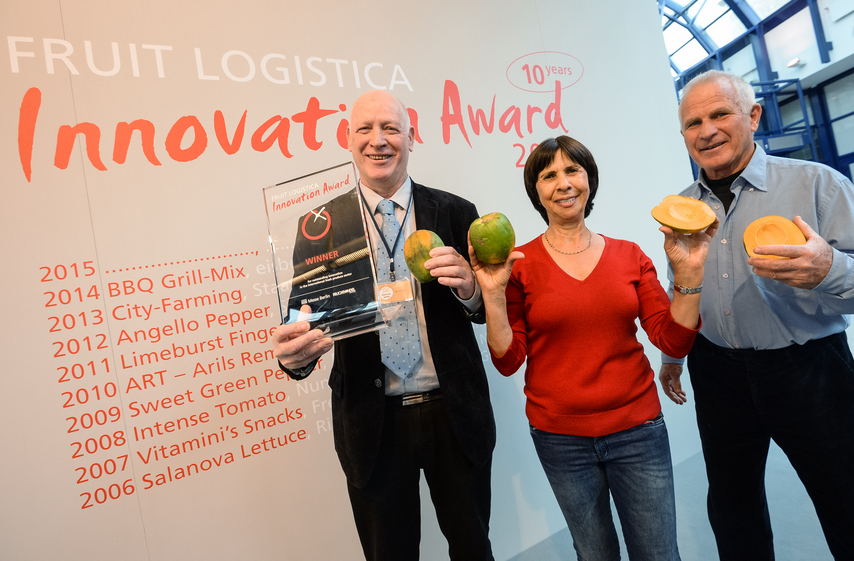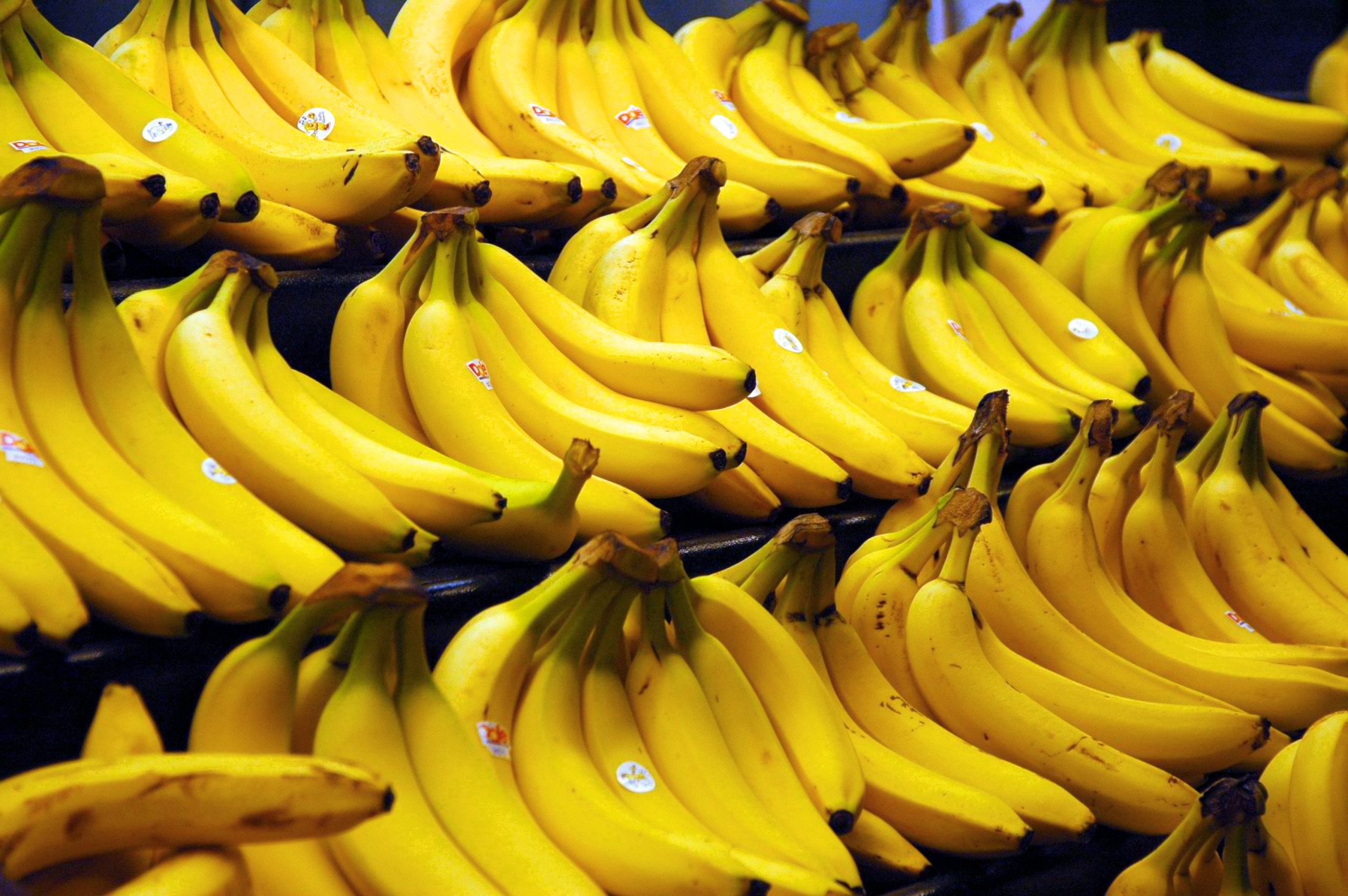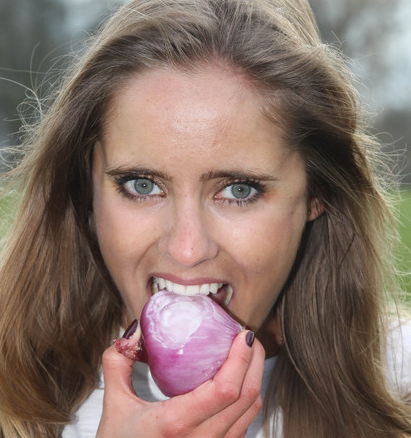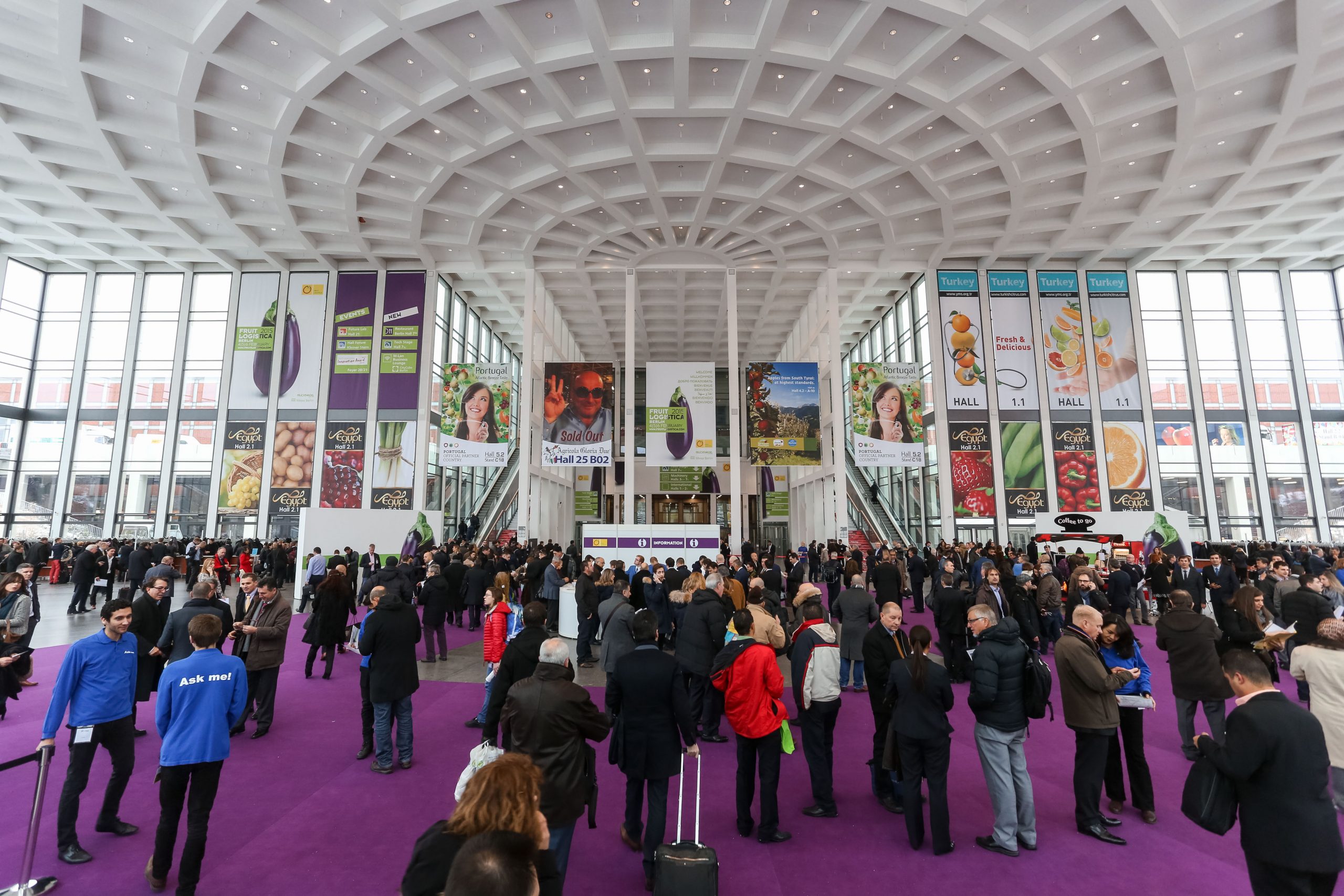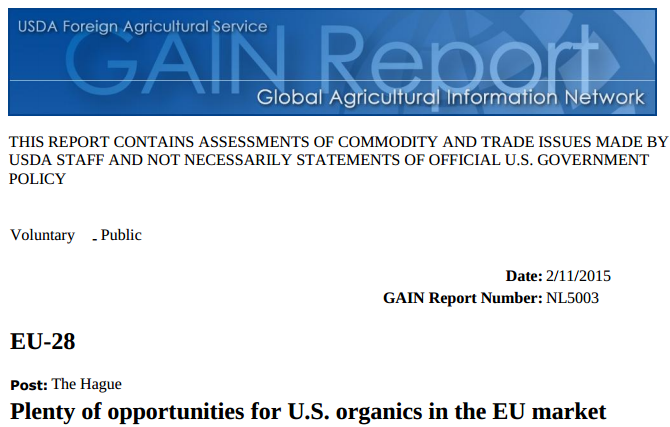
The growing market for organic products in the EU offers opportunities for US exporters affecting various kinds of produce, a new report by the US Department of Agriculture says.
The USDA said while trade is generally determined mainly by quality, price and local availability and demand, opportunities for US exporters include:
-
Sweet potatoes: the market for sweet potatoes is growing. EU demand for potato varieties is up. The US is the best year round supplier of sweet potatoes at competitive prices.
-
Fresh vegetables like onions, broccoli and lettuce: especially the UK.
-
Fresh fruit: especially in those countries with no local availability, there is demand for a great variety of fresh fruit from the US. There is seasonal (October through March) demand for apples and pears in northwestern Europe. Demand in the same region is also strong for US citrus (grapefruit and minneola). There is year round demand for fresh, dried, sweetened cranberries and demand continues to grow. Growing demand for other fruits includes grapes, strawberries and cherries.
Trade in organic products between the US and the EU
The report says that from 2011 to 2014, the largest increase in US exports of organic produce to the EU occurred in fresh grapes and reached USD 4.7 million in 2014 (2011: USD 0.8 million). In 2014, the value of US organic grape exports to the EU exceeded the export value of organic apples which used to be the most important US organic export commodity in 2012 and 2013.
Other important US organic export products to the EU after grapes and apples include strawberries, blueberries, peppers, and cauliflowers.
In 2014, most US organic exports to the EU occurred during October (grapes and apples) and November (grapes).
US exports to the EU of organic products which are covered by HS codes (introduced in 2011) reached USD 12.3 million in 2014. This compares to an increase of 77 percent from 2011 to 2014, the USDA said.
Figure 2. Top 10 EU countries with the highest organic sales USD per person, 2013 figures
Top 10 largest organic markets in the EU, million USD, 2013 figures
Read “Plenty of opportunities for U.S. organics in the EU market”
USDA Foreign Agricultral Service (FAS) Global Agricultural Information Network (GAIN) report




